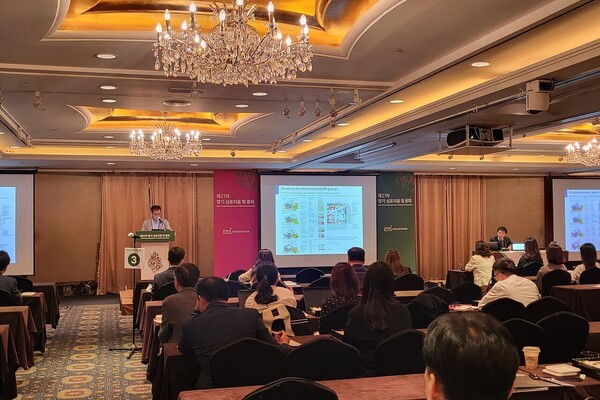Exkivity (mobocertinib), Takeda’s targeted agent for EGFR (epidermal growth factor receptor) Exon 20 insertion mutation non-small cell lung cancer (NSCLC), will likely improve patients’ quality of life, too, an expert predicted.

Professor Kim Tae-min of the Hemato-Oncology Department at Seoul National University Hospital said so while explaining the clinical significance of Exkivity (mobocertinib succinate) at the regular symposium and general assembly of the Korea Society of Medical Oncology (KSMO) last Friday.
At the workshop, Professor Kim shared major clinical data and treatment experiences using Exkivity, the only oral targeted agent among treatments for EGFR Exon 20 insertion mutation NSCLC.
Exkivity is an oral targeted therapy designed to selectively bind to the EGFR Exon 20 insertion mutation drug-binding site. It has a high median duration of response (mDOR) of 17.5 months and median overall survival (mOS) of 24.0 months, confirming its treatment performance.
In addition, patients have only to take the oral formulation of Exkivity once daily regardless of meals, finding it more convenient and easier than injections to adjust the dose in the case of adverse events.
While the median progression-free survival (mPFS) of EGFR TKI drugs, the existing therapies for EGFR Exon 20 insertion mutation NSCLC, remained at only 2.7 months, Exkivity recorded mPFS of 7.3 months.
In recognition of such clinical usefulness, the NCCN (National Comprehensive Cancer Network) guideline recommends Exkivity as the standard treatment for EGFR Exon 20 insertion mutation NSCLC. addition, the U.S. Food and Drug Administration also designated it as an innovative treatment in 2020.
Exkivity’s objective response rate (ORR) was 28 percent. Among patients who responded to it, 59 percent did so for six months or longer, and 19 percent did so for 12 months or longer, demonstrating a high efficacy and safety profile. The investigator-assessed ORR was 35 percent.
Exkivity’s clinical data were confirmed in the phase 1/2 study of 114 patients with EGFR Exon 20 insertion mutation NSCLC who had previously received platinum-based chemotherapy, according to the evaluation of an independent review committee (IRC). The most common adverse events were diarrhea, rash, and fatigue, showing a good safety profile. Adverse events were manageable with dose adjustments.
“As an oral treatment, Exkivity was released in the EGFR Exon 20 insertion mutation NSCLC that had limited treatment options, it became easier to manage drug compliance and abnormal reactions,” Professor Kim said. “Notably, the drug showed a long response duration of 17.5 months in patients who showed a response, making it possible to improve the patient’s quality of life, too.”
On July 19, 2022, Exkivity received approval from the Ministry of Food and Drug Safety to treat locally progressive or metastatic NSCLC patients with EGFR Exon 20 insertion mutation who had received platinum-based chemotherapy.

